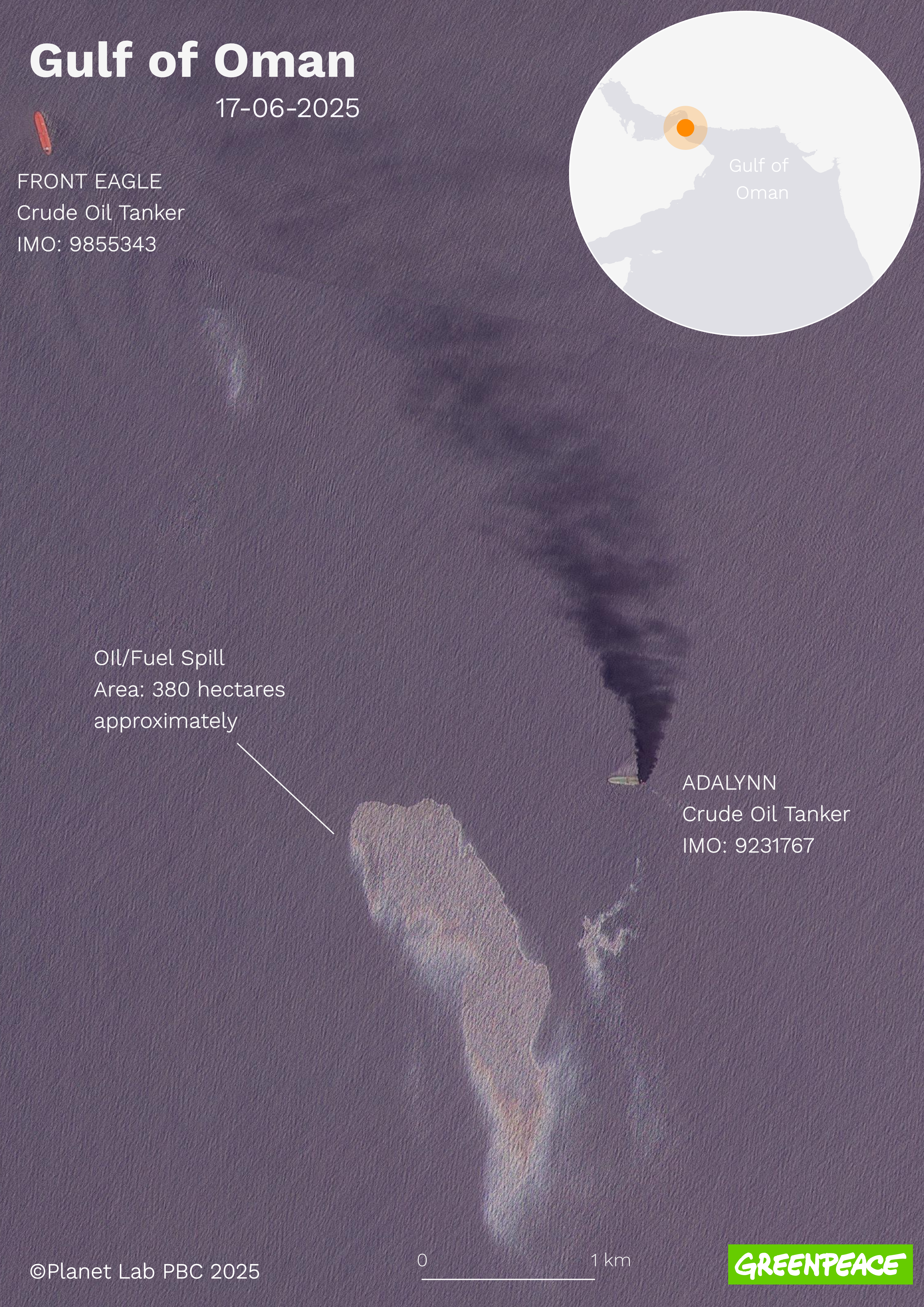It’s not a question of if oil will spill, it is a question of when. In just the past few months we have seen oil washing up on shores – putting wildlife and nearby communities at risk. We have also been seeing oil tankers – sitting ducks in the ocean – with potential to leak any moment. But the sad part is, none of this is new. Oil spills have always been an inevitable effect of this dangerous fossil fuel — and the data on oil spills is often incomplete. Available data does not include oil spills of less than seven tonnes, which the International Tanker Owners Pollution Federation (ITOPF) states “account for more than 80% of all oil spills at sea”. Not to mention the CO2 emissions from oil, which we were warned about back in 1965.
We are in the midst of a climate emergency – melting ice caps, dying coral reefs, wildfires, more and more extreme weather events – yet companies continue to drill for oil. These recent incidents, among several others this year, are just another reminder about the dangers of fossil fuels and why it is more urgent than ever to switch to renewable energy.
Mauritius
Around 1000 tonnes of oil leaked into the waters of the Indian Ocean after the MV Wakashio ran aground, striking a beautiful and irreplaceable coral reef on Mauritius’ southeast coast and causing an environmental disaster. Thousands of species are at risk of drowning in a sea of pollution and there have been dire consequences for Mauritius’ economy, food security and health.
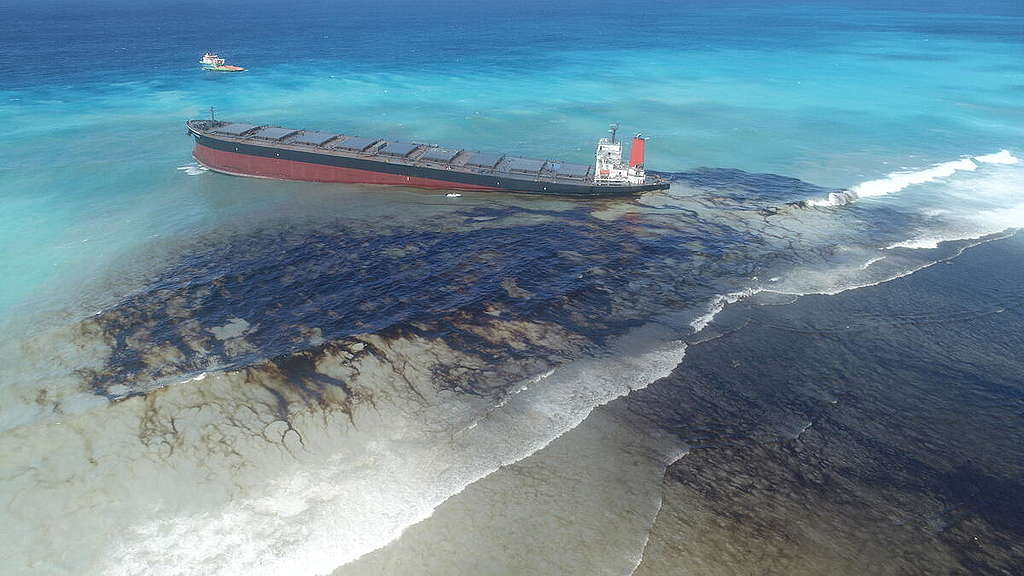
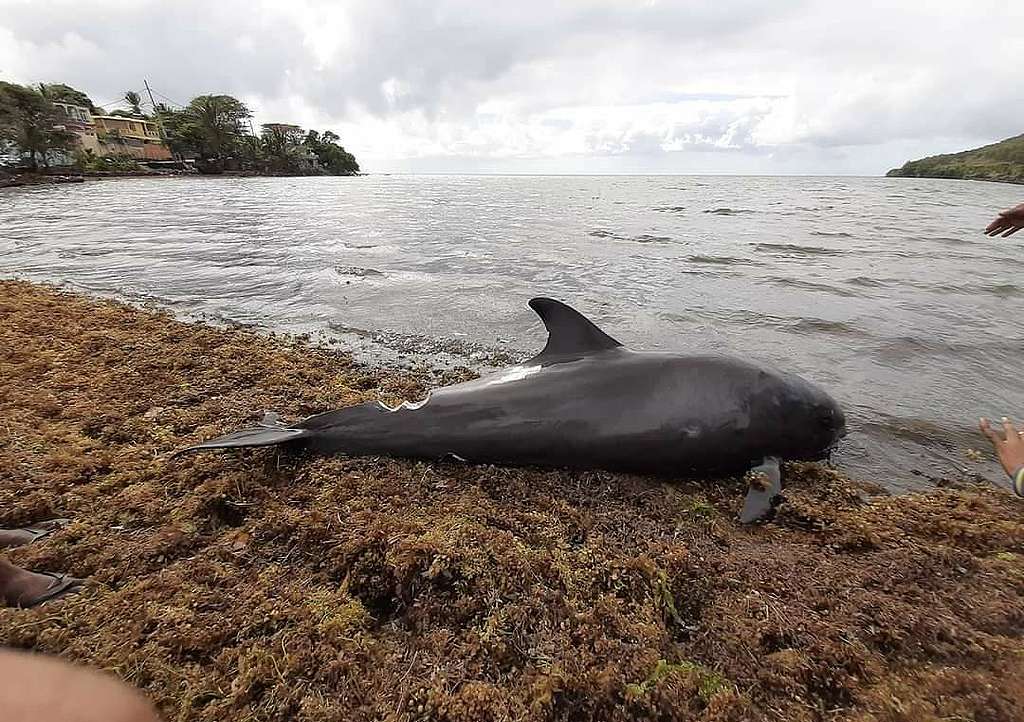
Venezuela
Oil began washing up along the coasts of Venezuela’s Falcón state in early August, appearing to have also affected some beaches in Morrocoy National Park. The origin of the oil is still unclear, but it has already had dire impacts on the local biodiversity and coastal communities. Even more recently, there was concern about reports of an oil storage tanker at risk of sinking in the Gulf of Paria.
Yemen
Off the coast of Yemen, an oil tanker called the FSO Safer has been left unattended and poses a threat of an environmental catastrophe. If left unattended much longer, there is every chance that the tanker could leak – or even explode – and spill the 1 million barrels of oil it is carrying into the Red Sea, devastating nearby coral reefs, clogging desalination plants and causing terrible suffering for many millions of people. Greenpeace is urging the United Nations to take urgent action.
Mexico
On the 16th of August, oil spilled from a Pemex pipeline into the Requena canal in Mixquiahuala, Hidalgo in Mexico. The spill contaminated crop fields in the municipalities of Tetepango, Tlahuelilpan, Mixquiahuala, Actopan, San Salvador and Chilcuautla and affected many people in the local community including Greenpeace Mexico volunteer Brianda Cruz, who worried about her own health and the health of her 5-month-old baby. Families who have their homes on the bank of the canal were evicted due to the penetrating smell of hydrocarbon and crop irrigation was postponed.
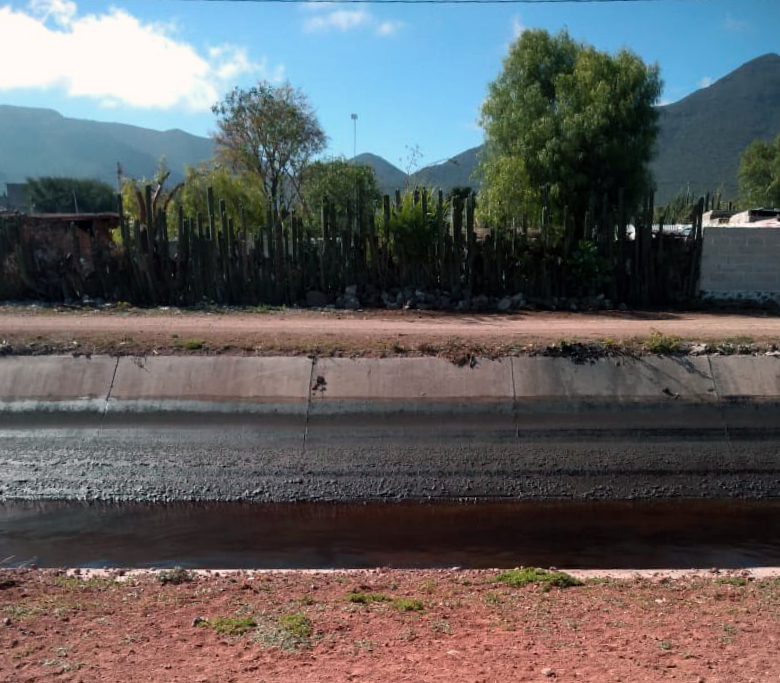
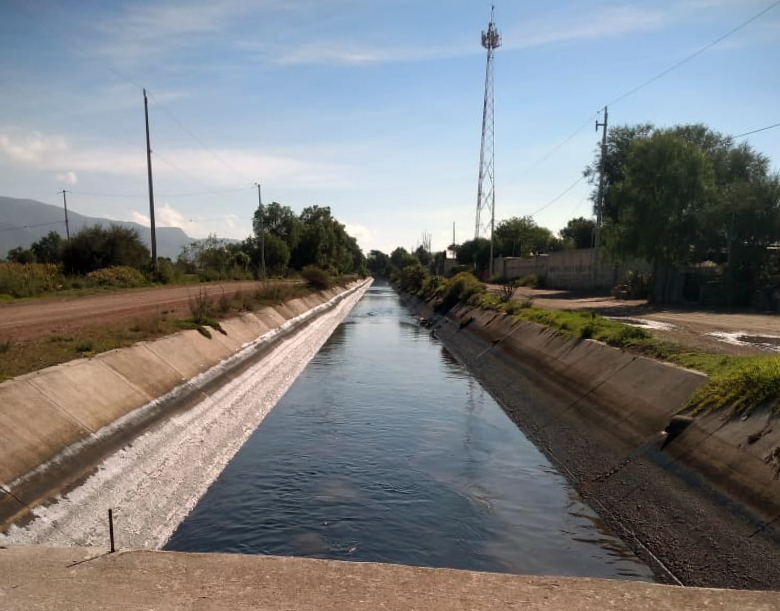
Russia
Looking back to the end of May, a tank containing diesel oil at the Nornickel’s Nadezhda plant on the Taymyr peninsula in the Russian Arctic burst, spilling in excess of 20 thousand tonnes of oil products into the local environment, contaminating more than 20km of local water courses and turning the Ambarnaya River red as it carries the petrochemical plume – up to 20cm thick – slowly towards the sea. This is one of the biggest oil product accidents ever to have occurred in the Russian Arctic.
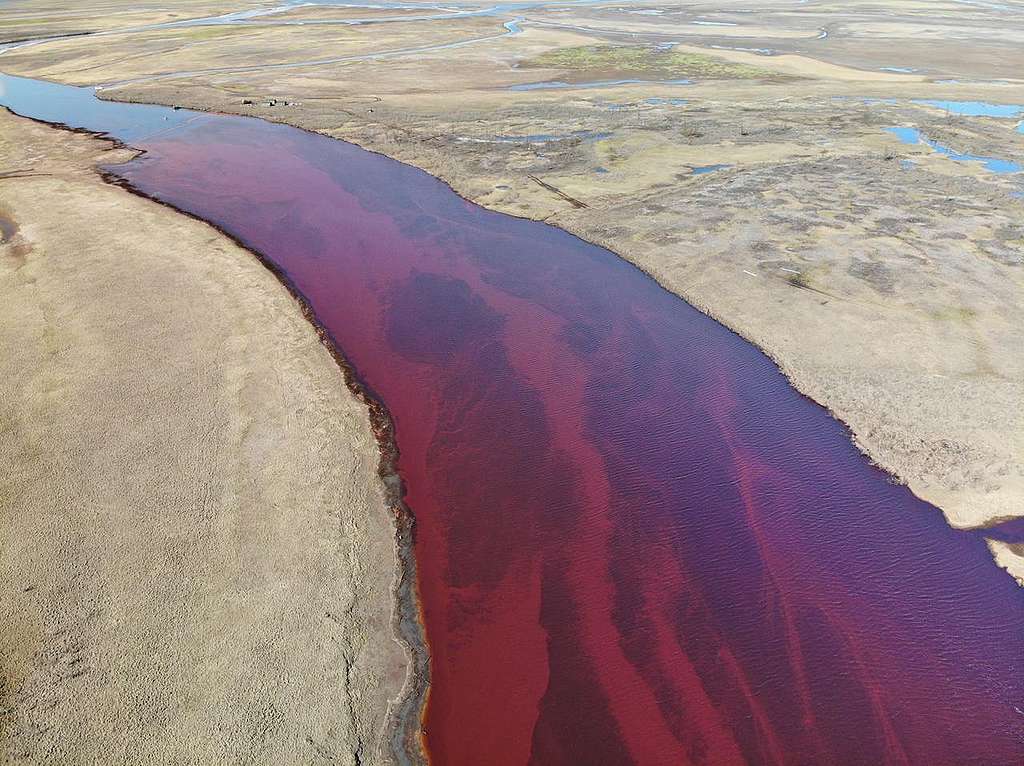
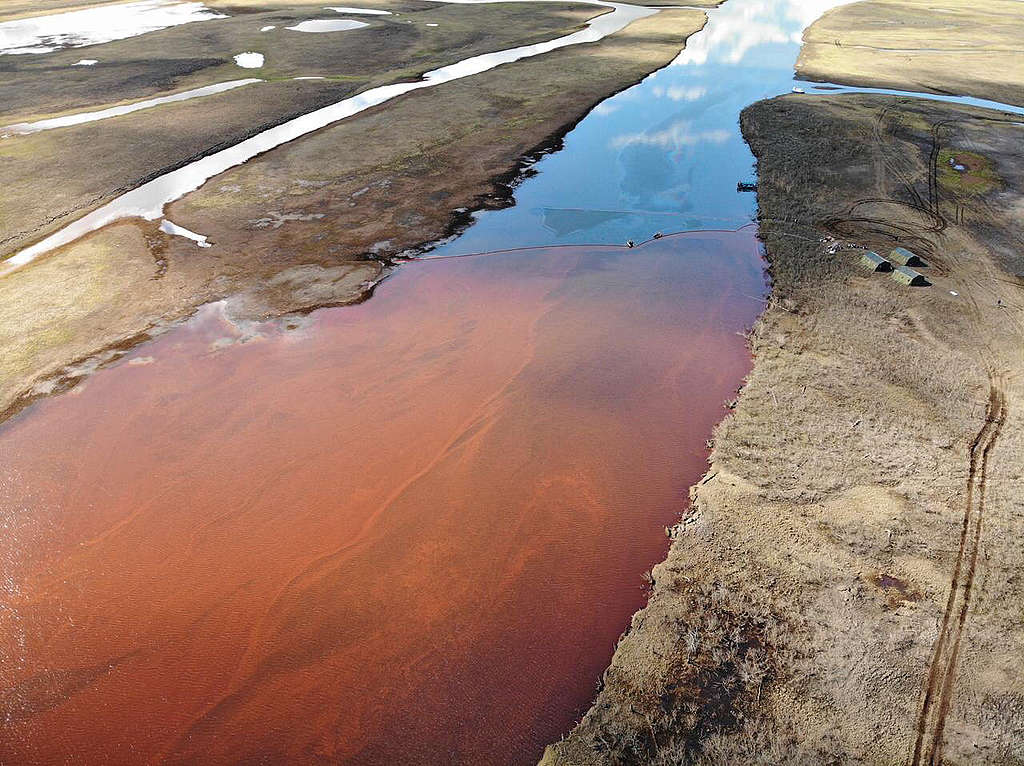
The impacts of these disasters are heartbreaking, but there is some good news. We are seeing the decline of oil taking place, but it needs to happen faster. The transition to lower consumption lifestyles and renewable energy systems remains more urgent than ever if we are going to fight this climate crisis.

